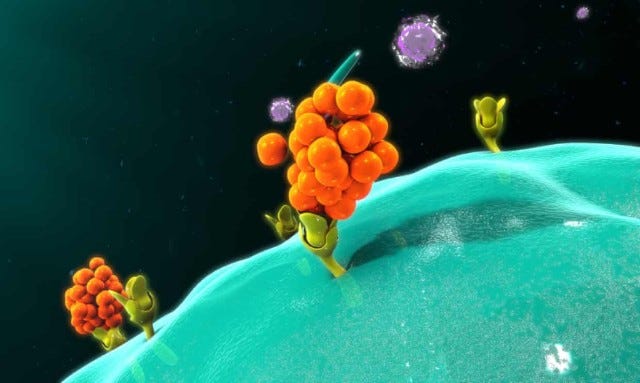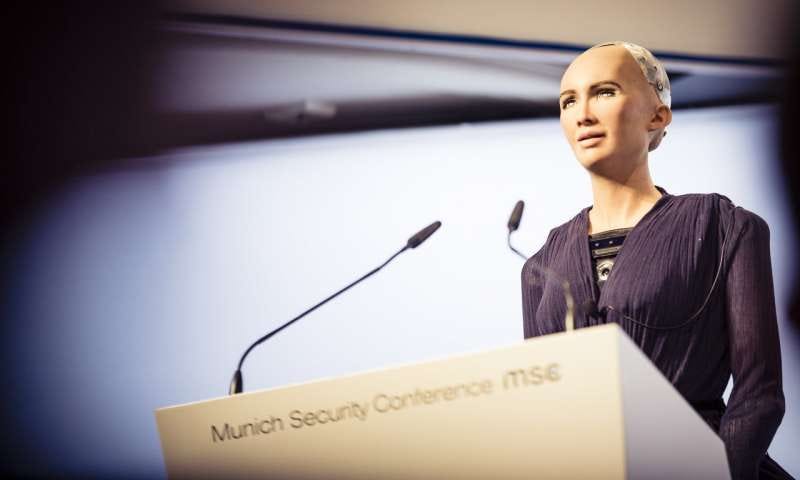Issue #175 - Boston Dynamics' Atlas does parkour; connecting human brains to play Tetris; can an AI be a person under the law;
View this email in your browser
This week - Boston Dynamics' Atlas does parkour; connecting human brains to play Tetris; can an AI be a person under the law; Japan set to allow gene editing in human embryos; and more news and articles on topics of transhumanism, AI, robotics and biotech.
MORE THAN A HUMAN
Want to live for ever? Flush out your zombie cells

As time passes, the number of damaged, ‘senescent’ cells in our bodies increases. These, in turn, are responsible for many effects of ageing. Scientists around the world are working to remove them from our bodies and make us live healthier for longer periods of time.
Bionic Limbs 'Learn' to Open a Beer
Coapt and Sense are two examples of advanced prosthetic arms. Both systems learn patterns of nerve signals firing to better translate the intent of the patient to the action.
How BrainNet Enabled 3 People to Directly Transmit Thoughts
Last month, in a study uploaded to the pre-print server arXiv, researchers described a system that lets three people collaboratively play a Tetris-like game. Dubbed “BrainNet,” the interface reads the brain activity of two people, the “senders,” and teases out relevant instructions on game play. These instructions are then used to stimulate the “receiver’s” brain, who then uses the information to perform a move in the game. For now, the instructions are incredibly simple in that they’re binary. The system can’t transmit words or sentence-like thoughts from one person to another. But it is proof-of-concept that, on an incredibly rudimentary level, we are inching towards technology that could potentially one day take telepathy out of the realm of science fiction into the real world.
Economics Nobel Prize Winner Sees No Singularity on the Horizon
William Nordhaus, who won this year's Nobel Prize in economics, wrote in 2015 a paper about Singularity. At that time, he couldn't find any evidence for Singularity to happen but it is interesting to discover that a professional economist decided to look at "the rapture of the geeks" and employ his skills.
ARTIFICIAL INTELLIGENCE
Could an artificial intelligence be considered a person under the law?

To answer the question above, legal scholar Shawn Bayer has shown that anyone can confer legal personhood on a computer system, by putting it in control of a limited liability corporation in the U.S. If that maneuver is upheld in courts, artificial intelligence systems would be able to own property, sue, hire lawyers and enjoy freedom of speech and other protections under the law. Some argue that if this scenario happens, the human rights and dignity will suffer.
ROBOTICS

In the newest YouTube video from Boston Dynamics, the humanoid robot Atlas shows his parkour skills by jumping over logs and jumping on crates.
Will Drones and Planes be Treated as Equals by FAA?
New rules for drone operators have been passed in the US recently. Under these rules, all unmanned aircraft would be limited to an altitude of 120 meters unless they have specific authorization to exceed that ceiling. They must also be operated within line of sight at all times, effectively ending long-range First Person View (FPV) flying. It also states that drones, just like traditional aircraft, must be registered and marked. It even authorizes the FAA to investigate methods of remote identification for drones and their operators, meaning it’s not unreasonable to conclude that RC aircraft may be required to carry transponders at some point in the future. Other countries might be encouraged now to pass similar rules.
A Long Goodbye to Baxter, a Gentle Giant Among Robots
Last week, we heard the news that Rethink Robotics, the company behind the iconic Baxter robot, is shutting down. This article describes the legacy of Baxter and the pioneering work done by engineers from Rethink Robotics.
Meet the farmers of the future: Robots
Meet Angus, the robotic farmer of the future. Made by Iron Ox for their robotic farms, Angus looks after crops and moves them from place to place on his own.
Walmart Is Using Autonomous Robots to Clean Its Floors
Walmart is testing autonomous robots designed to clear its floors. If you are lucky enough and visit one of 78 locations where the robots are tested, you might see Auto-C (short for Autonomous Cleaner) in action.
UnicornBot Will Enchant Kids Into Learning STEM and Coding
UnicornBot is, as its name suggests, a robotics unicorn. It was designed to teach children the basics of robotics and programming.
BIOTECHNOLOGY
Japan Set to Allow Gene Editing in Human Embryos

Japan has issued draft guidelines that allow the use of gene-editing tools in human embryos. The proposal was released by an expert panel representing the country’s health and science ministries on 28 September. Although the country regulates the use of human embryos for research, there have been no specific guidelines on using tools such as CRISPR–Cas9 to make precise modifications in their DNA until now.
Can We Create Life? Synthetic Biology and Biobricks
This video (20 minutes long) dives into synthetic biology. In the first parts, it discusses recent achievements like creating first synthetic bacterias. Then the usage of those custom made bacterias in our bodies is discussed. The last part of the video is for cons of synthetic biology, where such scenarios like unleashing a superbug, the green goo scenario and bioterrorism are being closely looked at.
Thank you for subscribing,
Conrad Gray (@conradthegray)
If you have any questions or suggestions, just reply to this email or tweet at @hplusweekly. I'd like to hear what do you think about H+ Weekly.
Follow H+ Weekly!



